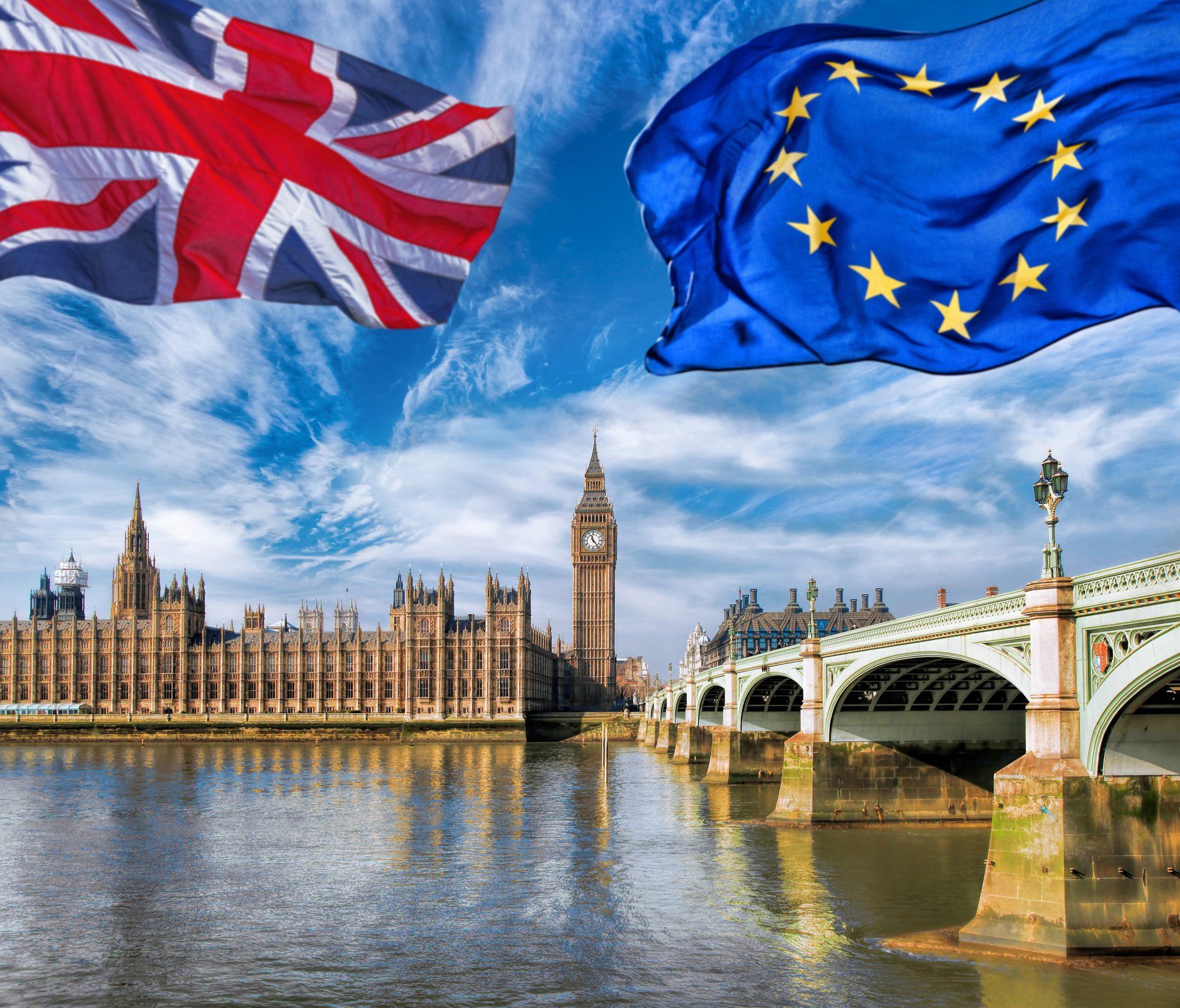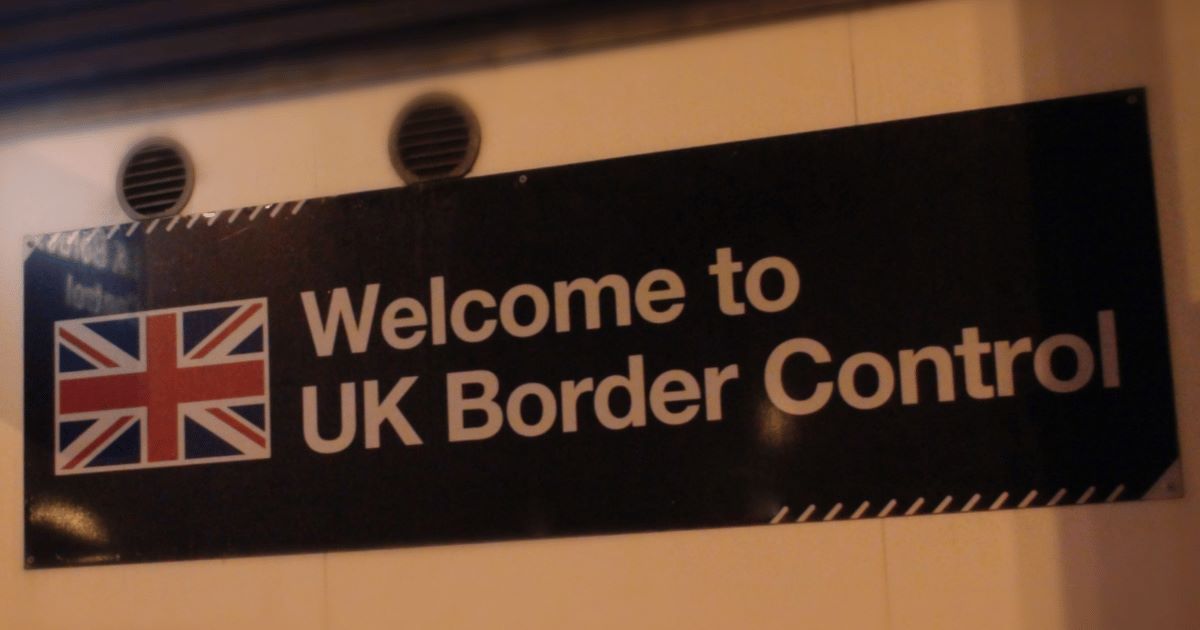Requirement to have a Physical Business Establishment within the EU
The UK and EU Trade and Cooperation Agreement (TCA) has ensured that UK businesses are not faced with costly duty tariffs when moving goods across the UK / EU border. However, companies on both sides of the UK / EU border must complete customs formalities, submit customs declarations and comply with the rules of origin to determine the “economic nationality” of their goods.
The TCA did not remove the requirements for UK based companies to have a physical presence within the EU to carry out certain taxable transactions or carry out import and export activities within the EU. Both UK and EU Customs refer to a business establishment as being a physical place of business where staff are permanently employed and where the technical resources of the business are based. In addition, they state that any customs operations should be wholly or partly carried out at the established place of business. UK based companies should decide if it makes commercial sense to embrace an EU established business model or a non-EU established business model. There is no one-size-fits-all solution for doing business within the EU, as companies have different ways of approaching business opportunities. UK organisations must therefore develop a strategy and business model to build business resilience, support
supply chains and meet customer expectations within the EU.
UK companies can only make the right executive decision once they have evaluated the costs for each option. At ICS Global Services, we are experts in international supply chain solutions. We assist our clients to analyse their business models and supply chain activities in conjunction with customs and VAT regulatory requirements, therefore providing the most cost effective and practical approach for their business.
EU Establishment Business Model
Post-Brexit, many UK companies doing high volume business transactions within Europe opted to set up an EU subsidiary business entity. The business decision to set up in Europe was driven by several factors and made commercial sense, despite the increased overhead costs. The main advantages of setting up an EU business was to reduce the level of bureaucracy, improve the sales process and avoiding tax and customs restrictions that apply to non-established companies. The resulting disadvantages were set-up costs, increased head count costs, transfer pricing and company taxation in both the UK and EU.
EU Non-Establishment Business Model
UK companies can conduct business within the EU without having a physical presence within the EU. Therefore, UK companies should carefully consider the appropriate business model prior to the establishment of an EU subsidiary business. Some companies may find the establishment of a subsidiary business, acquiring a property to work from, employing staff and operating the subsidiary is not cost effective. UK companies without establishment within the EU will require representative services from an established EU business to complete certain customs and VAT requirements.
Challenges for UK companies not established within the EU.
Customs Compliance
UK companies not established within the EU are not able to act as an EU Importer of Record or as an EU Exporter of Record. The Union Customs Code (UCC), states that the customs declarant must be, in principle, established in the customs territory of the European Union. Therefore, a non-established company importing or exporting goods into or out of the EU will be required to appoint a direct or indirect representative for managing the customs declarations and paying the VAT & Duty.
Regulation (EU) No 952/2013 of the European Parliament and of the Council
The Regulation (EU) No 952/2013 states:
The import declarant shall be established in the customs territory of the Union.
Commission Delegated Regulation (EU) 2015/2446
Amendments to Delegated Regulation (EU) 2015/2446 state that an Exporter is:
- a private individual carrying goods to be taken out of the customs territory of the Union where these goods are contained in the private individual's personal baggage;
- in other cases, where (1) does not apply:
i. a person established in the customs territory of the Union, who has the power to determine and has determined that the goods are to be taken out of that customs territory;
ii. where (i) does not apply, any person established in the customs territory of the Union who is a party to the contract under which goods are to be taken out of that customs territory.’
Value Added Tax (VAT)
When clearing goods into the EU, a non-established UK company will need to provide a VAT number for the customs clearance of goods along with their EORI number. The VAT registration number allows the non-established UK company to trade within the EU. However, the EU VAT registration means there is an obligation to maintain VAT records. EU regulations state that companies must have a certain type of establishment within the EU to carry out taxable transactions and ensure compliance with VAT requirements. In principle, it is mandatory within most EU countries for non-established companies to appoint a Fiscal Representative for taxable transactions, VAT records and VAT regulatory compliance.
VAT Directive 2006/112/EC
The EU Value added tax (VAT) Directive 2006/112/EC, Article 204 states:
Where, pursuant to Articles 193 to 197 and Articles 199 and 200, the person liable for payment of VAT is a taxable person who is not established in the Member State in which the VAT is due, Member States may allow that person to appoint a tax representative as the person liable for payment of the VAT.
Fiscal Representation
Tax consultants, tax agents, auditors, lawyers or accountants can act as a Fiscal Representative for a non-EU business entity. The Fiscal Representative is typically jointly liable for any non-payment of VAT by the non-EU business entity. The fiscal representative acts for the non-established company in matters concerning VAT and related administrative obligations. The Fiscal Representative of a non-established company takes care of:
- Application for a VAT registration number.
- On-going contact with the local tax authority.
- Preparing and submitting VAT returns, EU Sales Lists, Statistics return declarations, and general record keeping in relation to these services.
- Maintaining the compliancy of any invoicing.
- Handle any duties, fines or penalties associated with the importation of goods.
- The export documentation requirements for the export of goods out of the EU by the non-established EU business.
Types of Fiscal Representation
Some EU countries offer two types of Fiscal Representation, for example:
General Fiscal Representative in the Netherlands
A non-established company will need to obtain VAT registration in the EU country, they intend to trade in. To enable a non-established company to register their company for VAT in their own name within the EU, they will have to appoint a general fiscal representative. The general fiscal representation will enable a non-established company to apply for an Article 23 import license, which means they can avoid paying VAT on the clearance of their goods into the Netherlands. Instead, the import VAT will be postponed to the VAT returns and will be entered in the same way as a reverse charge transaction. There are similarities with the Postponed VAT Accounting within the UK.
Limited Fiscal Representation in the Netherlands
Some non-established companies may have to appoint a local entity as a limited fiscal representative, who will use their own VAT reporting for the non-established company’s transactions. The limited fiscal representation does not require the non-established company to have an EU VAT registration in their own name. This type of representation will only act on behalf of companies who are established outside of the Netherlands for certain scenarios. A non-established company, who may bring goods into the Netherlands from other EU countries or buy and sell services cannot use this type of representation. This representation relates to the importation of goods, the supply of zero-rated goods and intra-EU acquisition of goods.
Importer of Record
The business entity or individual responsible for the import customs entry documents required by customs, payment of duties, and any other import obligations is known as the Importer of Record (IOR). To act as the EU importer of record, the importing business will need a valid EU EORI number from one of the member states and a valid VAT number for the country of import. The Union Customs Code (UCC), states that the import customs declarant must be, in principle, established in the customs territory of the European Union. Therefore, a non-established company importing goods into the EU will be required to appoint a representative for managing the customs declarations and for paying the VAT and customs duties.
Types of Representation
Direct Representative
A Direct Representative can act in the name of and on behalf of another party established in the EU. The represented party is known as the declarant and is required to meet all the obligations arising from the customs declaration. Under customs regulations, the declarant will be responsible for maintaining the customs records and for providing an audit trail. The agent only becomes responsible in the case of professional negligence. The requirement to be established will prohibit non-establishment businesses from using this type of representation.
Regulation (EU) No 952/2013 of the European Parliament and of the Council, Article 18, Customs Representative states that any person may appoint a customs representative. In principle, a customs representative shall be established within the customs territory of the Union. The regulation requires a customs representative acting on behalf of the person represented to be able to provide evidence of their empowerment to do so.
Indirect Representative
An Indirect Representative can act in their own name as the importer of record and import declarant. Under customs regulations, the indirect representative will be responsible for maintaining the customs records and for providing an audit trail. The customs regulations state the indirect representative shall be jointly and severally liable for all customs liabilities arising from the customs related transactions. This type of representation is best suited to non-established EU companies.
The non-established company is required to provide the indirect representative with all requisite information, customs classifications and documentation to enable all customs formalities to be completed. EU customs authorities are most likely to pursue the indirect representative for non-compliance with customs regulations because there is no other EU based party to act against. Therefore, many indirect representative businesses will require contractual arrangements to be in place to protect them from any non-compliance by the non-established company.
Exporter of Record
The owner of the goods is usually the EU Exporter of Record, also known as EOR. However, in some cases, the owner of the goods cannot meet the EU export obligations. The EU provisions and guidance notes state that “If a person does not qualify to be an exporter, the business partners concerned must make contractual or business arrangements in order to establish who is the person responsible for taking the goods out of the customs territory of the EU”.
UK businesses that have no representation or physical presence within the EU, but as a non-resident company they do own goods stored in an EU warehouse have a challenge to overcome. The customs legislation within the EU states that the business must have a physical presence to export the goods. The solution for many UK companies is to appoint a third-party within the EU to act as the Exporter of Record. The EU Exporter of Record will complete the export customs formalities, submit the export customs declaration and ensure the goods are export customs cleared.
Indirect Representative
Article 1 (19) Union Customs Code (UCC) Delegated Act defines exhaustively three possibilities for a person to qualify as an EU exporter. An exporter is a person who is:
- Established in the customs territory of the Union,
- Holds a contract with a consignee in third country, and
- Has the power for determining that the goods are to be brought to a destination outside the customs territory of the Union.
As a non-established business does not qualify to be an exporter, the business will need the services of a business established within the EU. An Indirect Representative can act in their own name as the Exporter of Record and as the export declarant. Under customs regulations, the indirect representative will be responsible for maintaining the customs records and for providing an audit trail. The customs regulations state the indirect representative shall be jointly and severally liable for all customs liabilities arising from the customs related transactions. This type of representation is best suited for exports by non-established EU companies.
Post-Brexit Blogs
Please get in touch about establishment within the EU
There are many situations where a company would need to appoint a Fiscal Representative, an Importer of Record or an Exporter of Record, if you find your company in this situation, please contact us.
Contact Us
We will get back to you as soon as possible.
Please try again later.




